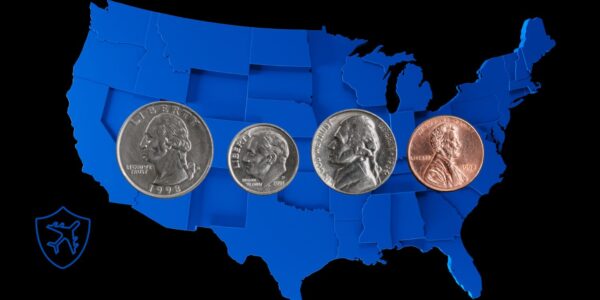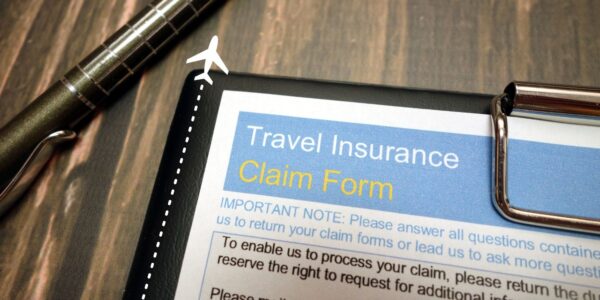What Is A Travel Document Number And What You Should Know [2023]

Are you an avid traveler or planning your first international trip? Understanding the importance of Travel Document Number can make your journey smoother and more secure. In this blog post, we’ll unravel the mystery behind these unique identifiers and explain how they play a crucial role in international travel. Get ready to embark on an informative adventure!
Travel Document Number Key Takeaways
- Experience enhanced security with travel document numbers for passports, visas, and green cards!
- Explore the latest security features such as biometric data, holograms and watermarks, and RFID chips to protect your documents from forgery or tampering.
- Follow these tips to ensure safe storage of your documents & make backups so you can enjoy worry-free adventures!
Understanding Travel Document Numbers

Unique identifiers found on valid travel documents such as passports and visas are known as travel document numbers. These numbers serve as the DNA of your travel identity, certifying your identity when you cross borders or apply for visas. Isn’t it fascinating how a simple combination of letters and numbers can open up the world for you?
But why are travel document numbers so important? Travel document numbers are instrumental in border control, visa applications, and verification of travel documents’ legitimacy. They essentially act as a safety net, enabling your entry into a foreign country and your planned activities there. Reading further will provide a more profound understanding of travel document numbers and their significance.
What Is A Travel Document Number?
Travel Document Number Meaning:
A travel document number is a unique identifier assigned to a travel document, such as a passport, visa, or other identification papers used for international travel.
This number is essential for record-keeping and tracking purposes by the issuing authority, which can be a government or an authorized organization.
When traveling to foreign countries, a passport travel document number serves as a unique identifier found on passports, visas, and other travel documents. These numbers are essential for border control and verifying the validity of passport booklets.
It’s intriguing how a single number can encapsulate such a wealth of information and be pivotal to your travel experience.
Some Key Points About Travel Document Number
Travel Document Number Location:
- Passport: The travel document number is usually located on the identification page of the passport, often near the top or bottom of the page containing the holder’s photo and personal information.
- Visa: On a visa, the number is typically printed along with other personal details and visa information.
- Other Documents: For other documents, the number will be prominently displayed, often in the header or on the main page.
The Travel Document Number Format:
- Varies By Country: The format varies by country and type of document. It typically includes a mix of letters and numbers.
- For example: U.S. passport numbers are nine-digit character combinations.
The Travel Document Number Purpose:
- Identification: It uniquely identifies the specific document and its holder.
- Tracking: Authorities use it to track the issuance and validity of the document.
- Verification: It helps in verifying the authenticity of the document and checking against databases for lost, stolen, or otherwise flagged documents.
Your Travel Document Number – Use In Travel:
- Booking Flights: Often required when booking international flights.
- Visa Applications: Necessary when applying for visas.
- Border Control: Used by immigration authorities to verify traveler’s identity and travel history.
Travel Document Number Security Feature:
- Ensures Security: Ensures the security of the travel document by allowing authorities to track and verify it.
- Prevents Identity Theft: Helps prevent identity theft and fraud by providing a unique identifier for each document.
Why Are Travel Document Numbers Important?
Travel document numbers are indispensable for border control, visa applications, and the verification of travel documents’ legitimacy. Imagine the chaos if two people had the same passport number! To avoid this, no two passports have the same travel document number, which helps ensure the authenticity and validity of the passport.
Visas, too, have unique numbers to confirm your eligibility to enter a country and specify the conditions of your visit. With these numbers in place, you can rest assured that your travel documents are secure and reliable, even when enjoying visa-free entry to certain destinations.
Types of Travel Documents and Number Of Travel Document

Knowing the types of travel documents you may need to carry is crucial as you embark on your international adventures. The three most common types are passports, visas, and green cards. Each of these documents comes with its unique number, allowing you to travel between countries with ease and confidence.
Let’s delve into each travel document and its corresponding number to give you a clearer comprehension of their roles and how they aid your globetrotting experiences.
Passports And Passport Numbers
What Is Travel Document Number On Passport?
For international travel, a legitimate passport is vital, A passport is an official document, with unique passport numbers serving for identification and tracking.
- The Passports are issued by the authorized institution in your birth country
- The passport number can be found on the top right-hand corner of the document
- The U.S. passport numbers have 6 to 9 characters, making them easy to spot and remember
- With your passport booklet in hand, you’re ready to explore the world!
Our handy guide on essential documents before you travel internationally can be helpful for foreign trip planning.
Visas and Visa Numbers
What Is Travel Document Number On Visa?
The visa number is an eight-character code and used for identification and tracking purposes. With your visa in place, you’re all set to embark on new adventures! Here is a guide to US Visa Types.
The Visas grant entry to foreign countries under specific conditions, with visa numbers providing information about the traveler and their visit. Visas are issued by the citizenship and immigration departments of each country, and visa numbers are unique identifiers found on visas.
The purpose of a visa is usually associated with the reason for your visit, such as:
- Tourism
- Business
- Studies
- Employment
Green Cards and Green Card Numbers
What Is Travel Document Number On Green Cards?
Green cards grant permanent residency in the U.S., with unique green card numbers used for identification and tracking purposes. The green card number, a ten-character alphanumeric code, is usually located in the center of the card.
While green cards technically aren’t travel documents themselves, they can make travel a lot easier when used in conjunction with a passport. With your green card, you can enjoy the benefits of living and working in the United States.
Obtaining And Renewing Travel Documents
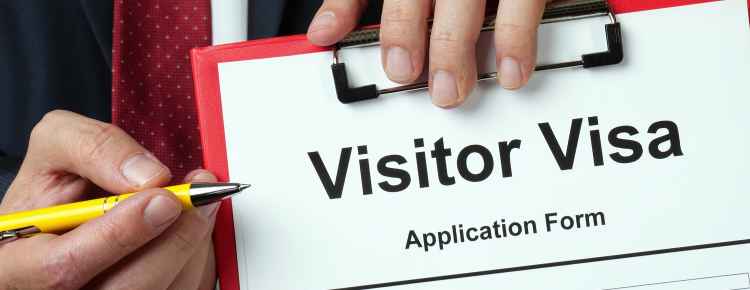
After exploring the types of travel documents and their numbers, it’s time to discuss the steps to obtain and renew these crucial documents. Whether you’re applying for a new passport, visa, or green card, the process may seem daunting at first. However, with the right information and guidance, you’ll have your documents in hand, ready for your next adventure!
A detailed look at the application process for each travel document, including refugee travel documents, will guide you on what to do when the time comes.
Applying for a Passport
Applying for a passport involves submitting an application, providing proof of citizenship, and paying a fee. You’ll need a government-issued ID card and proof of citizenship, like a birth certificate, to get a U.S. passport card. The entire process for U.S. passports may take six to eight weeks, but expedited passport services are available if you need your passport sooner.
Once you have your passport, the world is your oyster!
Applying for a Visa
Visa applications require visiting an embassy or consulate, filling out forms, and paying a fee. The type of documents needed for a visa application will vary depending on the type of visa being applied for. During the visa application process, you may need to complete a DS-160 form for a U.S. visa and attend a visa interview to verify the information provided in the application and determine your eligibility.
Once your visa is approved, you can confidently plan your travel abroad to a foreign country. Each visa number is unique and visas can be for different purposes like tourist visas, employment-related visas, etc.
If you are looking to visit the USA for tourism or business here is our guide to the B1-B2 Visa.
Applying for a Green Card
Green card applications involve proving eligibility, submitting forms, and attending an interview with USCIS. You’ll need immigration-related documents, such as visas, Form I-94 travel and departure records, and an employment authorization document to prove your eligibility for a green card.
The process of applying for a green card involves completing at least two forms – an immigrant petition and a Green Card application (Form I-485). Processing times can vary, so it’s best to consult the official USCIS website for detailed instructions and requirements.
Travel Document Security Features

Modern travel documents come equipped with a variety of cutting-edge security features, making them incredibly difficult to forge or tamper with. These features include biometric data, holograms and watermarks, and RFID chips. As you travel the world, you can rest assured that your documents are protected by the latest technology, ensuring your safety and security.
Let’s delve into each of these security features and discover how they work to keep your travel documents safe from unauthorized use.
Biometric Data
Biometric data, such as fingerprints and facial recognition, enhance the security of travel documents by uniquely identifying individuals based on their physical characteristics. This data is used to verify the identity of the holder of a travel document, making it even more difficult for someone to use a stolen or counterfeit document.
With biometric data on your side, you’ll be traveling with the utmost confidence.
Holograms and Watermarks
The Holograms and watermarks help prevent forgery and ensure the authenticity of travel documents by making them difficult to replicate. Holograms are three-dimensional images embedded in the document, while watermarks are two-dimensional images printed on the document.
These security features not only protect your travel documents but also help border control agents identify and verify your documents quickly and easily.
RFID Chips
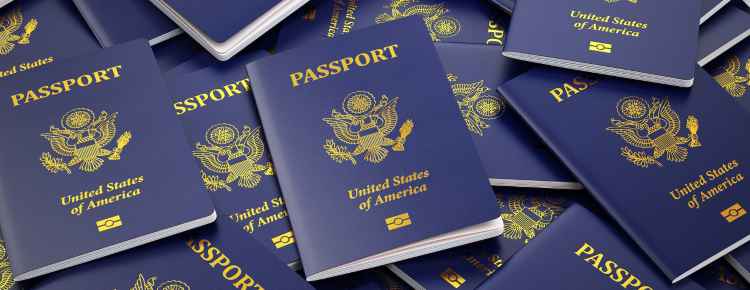
RFID chips offer several benefits for travel documents:
- They store personal information and biometric data, enhancing security.
- They use radio waves to transmit and receive data, making identification quick and secure.
- They are protected by powerful encryption and authentication protocols, ensuring the safety of personal information.
Tips for Protecting Your Travel Documents
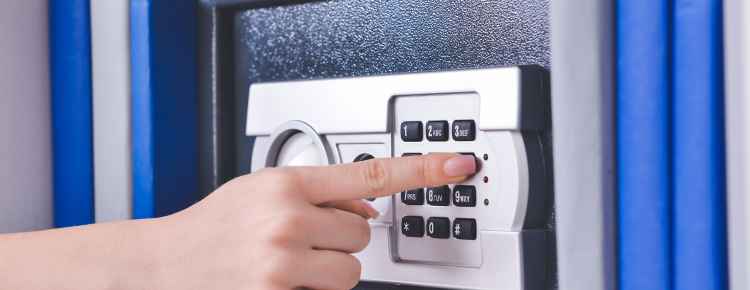
Being familiar with various travel documents and their security features necessitates steps to protect your documents from loss, theft, or damage. After all, your travel documents are your key to exploring the world, and safeguarding them ensures that your journey remains smooth and worry-free.
Discussing some tips on maintaining the safety and security of your travel documents will allow you to focus on enjoying your trip.
Safe Storage
Prevent loss or theft by securely storing your travel documents when not in use. Keep them in a safe or locked drawer. Make sure to keep them away from heat and moisture to prevent damage.
Taking these precautions will keep your documents in pristine condition, ready for your next adventure, without worrying about damages.
Photocopies and Digital Backups
In the event of loss or damage, maintain photocopies and digital backups of important travel documents. You can use a photocopier or scanner to make physical copies and a computer or cloud storage for digital backups. Store these backups securely and password-protect digital copies for extra security.
Having backups allows quick access to your documents when needed, providing peace of mind while traveling.
Reporting Lost or Stolen Documents
In case your travel documents are lost or stolen, promptly report to the appropriate authorities to prevent unauthorized use. Contact the issuing authority of the document, such as the passport office or the visa office. Provide them with the necessary information.
Promptly reporting lost or stolen documents can help you avoid potential fines, penalties, or other legal repercussions.
Summary
In conclusion, understanding travel document numbers and their significance is crucial for a hassle-free international travel experience. By familiarizing yourself with the different types of travel documents and their unique numbers, taking steps to obtain and renew these documents, and using cutting-edge security features to protect them, you’ll be well-prepared for your next adventure. So, pack your bags, secure your documents, and embark on a journey filled with unforgettable experiences!
Frequently Asked Questions
Is the travel document number the same as the passport number?
Yes, your passport number is a travel document number. Keep in mind that each travel document has specific numbers or digits, so make sure you’re using the right one!
Where can I find the travel document number on a US visa?
Exciting news! Your travel document number is located on your US visa – just look for the red number in the bottom right corner. This number is also referred to as the visa foil number and typically consists of eight numeric characters or one letter followed by seven numeric characters.
Is a travel document the same as a passport?
A travel document is a necessity for crossing international borders – the passport and visa provide all the necessary details. In this case, the travel document is not the same as a passport – the visa must be included for entry into the US.
Where can I find my passport number?
You can easily find your passport number in the top right-hand corner of your passport’s identification page – so start searching!
How long does it take to obtain a U.S. passport?
Obtaining a U.S. passport typically takes six to eight weeks, but if you need it sooner, expedited services are available!
